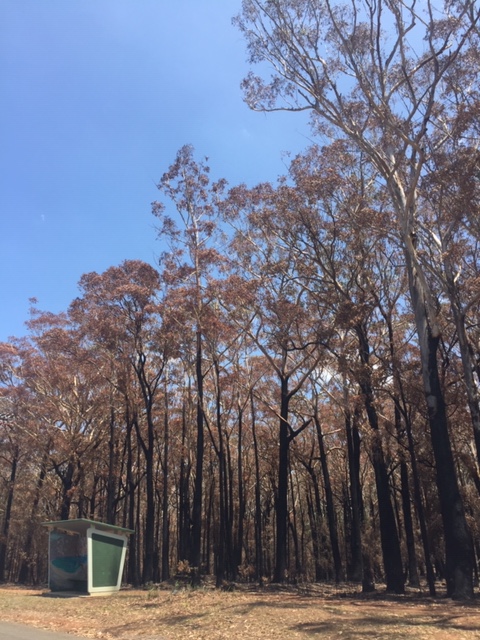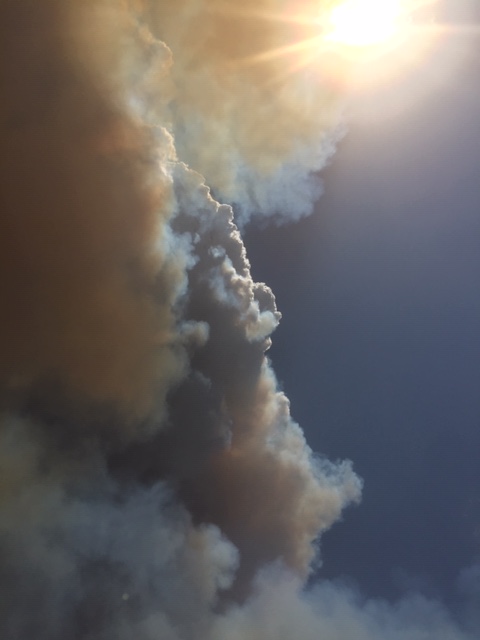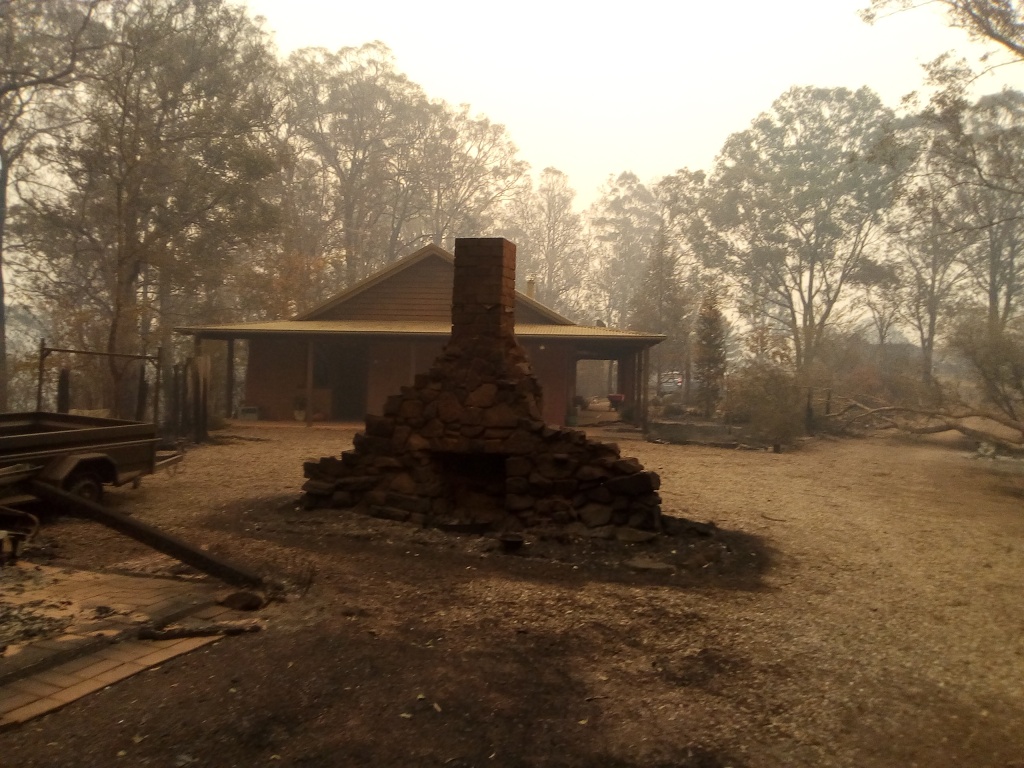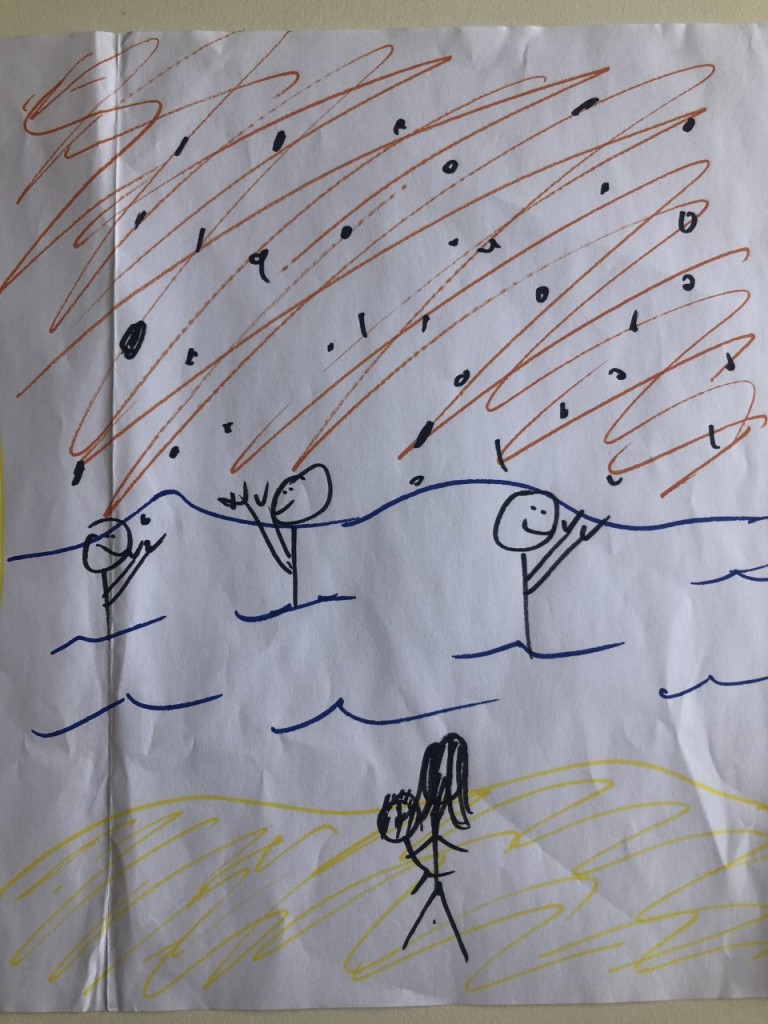Dear Scott Morrison,
This morning I woke up and reached for my phone to check the news, as I have been doing for the past 4 months. The news right now for me is one of fires and devastation, and it is heartbreaking. I read or watch stories from the firefighters families; I see pictures of our country burning, our wildlife charred, our people desperate for help, and our prime minister forcing handshakes with exhausted firefighters who are understandably angry about the lack of action and the refusal to acknowledge their prior warnings on the extreme weather predictions for this fire season. I read news stories about who is to blame, what people think we should be doing, what we could be doing. But then I switch off, and go back to my normal daily routine; walking the dog, having breakfast and heading to work.
I am lucky. I live on the Gold Coast, where apart from a slightly smoggier view of Surfers Paradise in the distance, you could go about your everyday life completely unaware that anything is out of the ordinary. Today though, I don’t have to go to work. For the first time since the fires began I have finally let my emotions take over and allow the tears to stream down my face along with the feeling of hopelessness as I question what more I could and should be doing to help.
Years ago I found my passion for the environment, and made it my goal to attend uni in hope of changing career paths to do something I felt would be more rewarding that my current career working in restaurants. I started studying social science and began learning about why the world is the way it is, and thinking about what I could do to make a difference. A couple of years into my degree I went to study a subject in Sri Lanka and it changed my path once more. Although the experience was amazing, it also reminded me of the corruption in the world and how hard it can be to make a change. I questioned whether I was strong enough to be battling with the rejection day in and day out – the rewards being very few and far between. I came home and decided to make a change towards studying conservation work instead. I felt the idea of working in a national park would be much more suited for me and my mental health, as I had already battled with depression before and didn’t want to encourage it to reappear. I had already studied how spending time in green spaces was good for your mental health and thought that working in them would be one of the best jobs in the world. Who wouldn’t want to spend their working days walking around in nature? Studying social science had been depressing, but studying conservation was just as bad. I learnt about how we are entering the sixth extinction, the amount of species we are losing every day, and the changes to our land clearing laws that have helped to shape Australia as one of the world leaders in land clearing. Conservation was just as corrupt, and again I was depressed. I decided to go back to work in my field of hospitality and instead look at how I could make changes in the industry I already knew. Although some days it can feel hopeless working in a restaurant – you look at the food waste (and waste in general), the single use and plastics, the over-consumption and the many entitled customers who have way too much money to spend and on occasion treat you like you’re beneath them – most days are good days. You are dealing with people when they are at their best; celebrating a birthday, anniversary, or just sharing a meal with loved ones. I get to help make an experience that they will remember; recommend a dish I think they will enjoy, a new wine varietal they have never heard of, discuss with them an ingredient I find interesting, talk about some amazing producer that is doing something different, or just be there to make sure their overall experience is an enjoyable one. Most days I leave work happy knowing that I have made many others feel the same way. Dining out is an escape from what is happening in the world around us.
Lately though, it is getting harder to escape from the outside world. I’ll sit outside on my lunch break having a conversation with one of the chefs about how hopeless we feel right now with everything going on around us. How our generation feels like it has this big weight on our shoulders, yet we don’t know how we can change anything with our current leaders in charge. I’ll get texts from my friends who have spent the morning in tears, wondering how we can do more to help, yet at the same time are struggling to make ends meet themselves. This is my story, but I know that I am not alone.
Many of my friends and family have donated money to help fight the fires, and pages shared by celebrities are reaping millions of dollars in donations. Yet it is not only money that we need to help our situation. It is change. Change in legislation. Change in the way we run our country. Change in the way we think about climate change.
Do not let our sunburnt country become a charred and flooded island. Weather events like these are only going to become more frequent and more extreme. Leaving future generations to deal with the consequences of inaction is irresponsible and unjust. It is time to stand up and be the leader that Australia needs. It is time to take action on climate change.
Sincerely,
Kylie Jade Bartulis
Gold Coast, QLD













